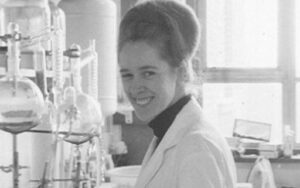 “High multiples” or “supertwins” are still rare. Only one in 7000 births results in triplets, and the odds of having quads or more are in the millions. High order multiples are dangerous for both the mother and the babies, with a greatly increased risk of premature births, developmental complications, and lengthy stays in newborn intensive care units (NICUs.)Some prospective parents are really happy about multiple births, while others are dismayed at the stress and cost of raising two babies at the same time. What causes multiple births? And if you’re considering fertility treatments, do you need to worry about it?
“High multiples” or “supertwins” are still rare. Only one in 7000 births results in triplets, and the odds of having quads or more are in the millions. High order multiples are dangerous for both the mother and the babies, with a greatly increased risk of premature births, developmental complications, and lengthy stays in newborn intensive care units (NICUs.)Some prospective parents are really happy about multiple births, while others are dismayed at the stress and cost of raising two babies at the same time. What causes multiple births? And if you’re considering fertility treatments, do you need to worry about it?Multiple Births: Could It Happen to You?
Have you noticed how twins are much more common than they used to be? And triplets or quads, while still unusual, are not unheard of. The rate of twin births increased by 76 percent from 1980 to 2009, according to a recent report by the National Center for Health Statistics. Now one in 30 babies born in the United States is a twin. “High multiples” or “supertwins” are still rare. Only one in 7000 births results in triplets, and the odds of having quads or more are in the millions. High order multiples are dangerous for both the mother and the babies, with a greatly increased risk of premature births, developmental complications, and lengthy stays in newborn intensive care units (NICUs.)Some prospective parents are really happy about multiple births, while others are dismayed at the stress and cost of raising two babies at the same time. What causes multiple births? And if you’re considering fertility treatments, do you need to worry about it?
“High multiples” or “supertwins” are still rare. Only one in 7000 births results in triplets, and the odds of having quads or more are in the millions. High order multiples are dangerous for both the mother and the babies, with a greatly increased risk of premature births, developmental complications, and lengthy stays in newborn intensive care units (NICUs.)Some prospective parents are really happy about multiple births, while others are dismayed at the stress and cost of raising two babies at the same time. What causes multiple births? And if you’re considering fertility treatments, do you need to worry about it?
 “High multiples” or “supertwins” are still rare. Only one in 7000 births results in triplets, and the odds of having quads or more are in the millions. High order multiples are dangerous for both the mother and the babies, with a greatly increased risk of premature births, developmental complications, and lengthy stays in newborn intensive care units (NICUs.)Some prospective parents are really happy about multiple births, while others are dismayed at the stress and cost of raising two babies at the same time. What causes multiple births? And if you’re considering fertility treatments, do you need to worry about it?
“High multiples” or “supertwins” are still rare. Only one in 7000 births results in triplets, and the odds of having quads or more are in the millions. High order multiples are dangerous for both the mother and the babies, with a greatly increased risk of premature births, developmental complications, and lengthy stays in newborn intensive care units (NICUs.)Some prospective parents are really happy about multiple births, while others are dismayed at the stress and cost of raising two babies at the same time. What causes multiple births? And if you’re considering fertility treatments, do you need to worry about it?Subscribe to stay in the loop
Our newsletter delivers expert insights, practical benefit strategies, heart warming member
moments, and the latest in fertility and family-building news straight to your inbox.



